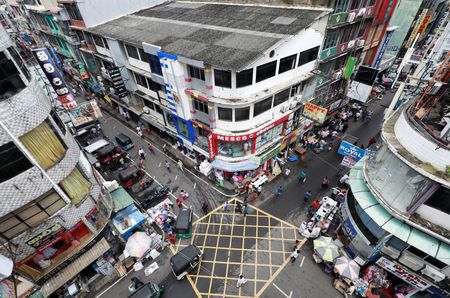By Geoffrey Smith
Investing.com -- Sri Lanka formally defaulted on its foreign debt on Thursday, as a succession of external shocks and economic mismanagement left it without the money to pay even for fuel imports.
The South Asian island nation is the first country in two years to formally default on its debt and threatens to set a precedent for the rest of the world grappling with an increasingly severe inflation problem.
Severe shocks to food and energy prices are causing economic distress in more and more countries, aggravating already existing problems caused by the pandemic and the world's policy response to it.
Central Bank Governor Nandalal Weerasinghe told a briefing that the country hadn't been able to find the money to pay $78 million in interest on a dollar bond and $105 million in interest on a loan from Chinese state-backed entities within the 30-day grace period allowed under the terms of those debts.
While Sri Lanka's foreign debt, at $12.6 billion, is small in relative terms, the economic crisis unfolding there has similarities with various other parts of the emerging world. Revenue from tourism, its biggest generator of foreign currency, fell by over 80% in the first year of the pandemic, according to World Bank data, under the impact of travel bans.
Without that revenue, and almost entirely dependent on imports for fossil fuels, it has been brutally exposed to the near-doubling of oil prices over the last year.
The country's ability to feed its population of 22 million has, meanwhile, been undermined by a ban on the import of fertilizers and pesticides, which have led to an estimated 30% drop in agricultural yields this year.
The government has since watered down that ban, but too late to stop widespread shortages this year, which have boiled over into violent protests against the ruling Rajapaksa clan.
The collapse of tourism revenue has forced the central bank this year to abandon its initial attempts to defend the value of the Sri Lankan rupee. It has now lost over 50% of its value against the dollar since the start of 2020, although - like the country's stock market - it has stabilized at a low level since the central bank admitted last week that default would be hard to avoid.
The dollar rose a relatively modest 1.4% against the rupee in response to the news on Thursday, while the MSCI Sri Lanka stock index edged up 0.8%.
The country has begun talks with the International Monetary Fund on a restructuring process, which Weerasinghe suggested on Thursday could take around six months to complete. That will depend largely on the attitude of its biggest foreign creditor, China, which has lent lavishly to a succession of Rajapaksa governments to finance projects of questionable economic value in the last two decades. That has made Sri Lanka a central figure in arguments over what critics call China's 'debt trap diplomacy', a process by which Beijing leverages the economic distress of its debtors to gain strategic assets across the world. The accusations are routinely rejected by China and disputed by many economists.
